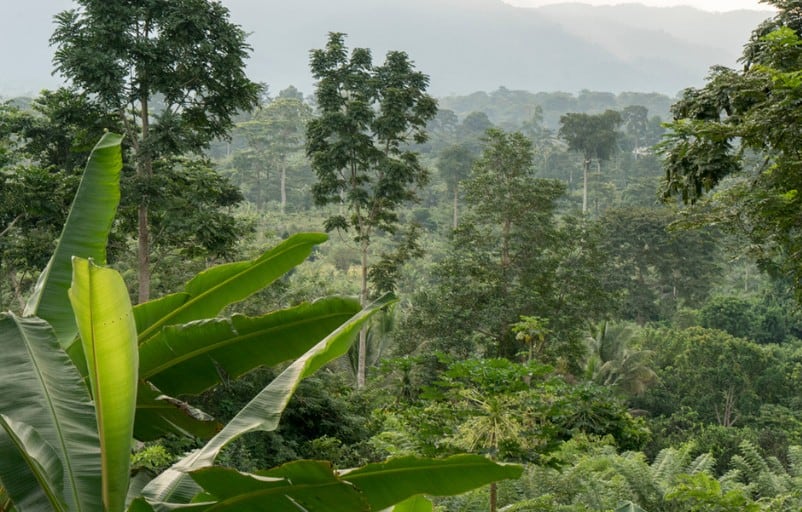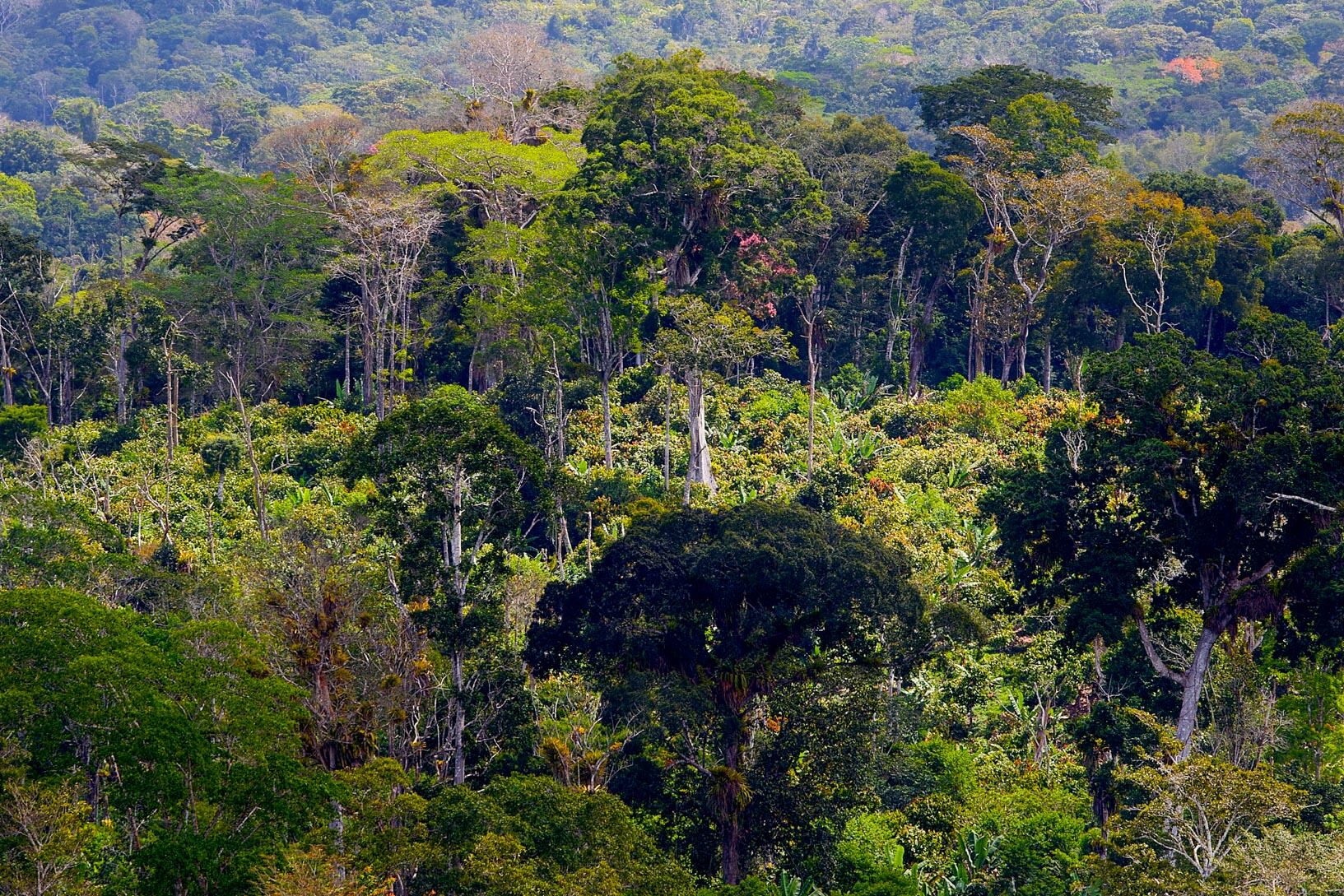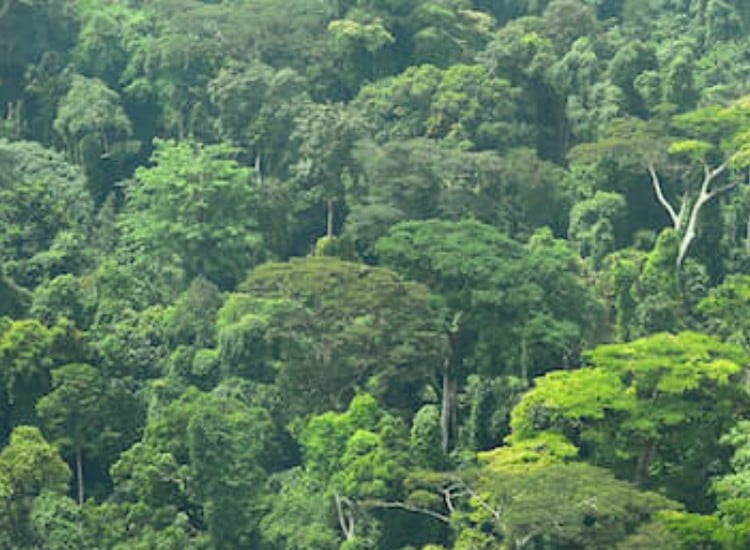Two joint public/private sector reports reveal that both Ghana and Cote d'Ivoire have reached new milestones in traceability.
The government of Cote d’Ivoire has mapped 1 million farmers with 3.2 million ha of cocoa farms. In Ghana, a total of 515,762 farmers owning 845,635 farms have been registered in the national Cocoa Management System, accounting for 72% of the total cocoa area.
Other actions in 2021 included more development of agroforestry with the distribution of 11.3 million non-cocoa trees by cocoa and chocolate companies in the neighbouring West African countries.
This brings the total number of multi-purpose trees supplied by the private sector since the launch of CFI to 21.7 million. In both countries, companies reached on average 72% traceability in their direct supply chains. Companies are also investing in large-scale farmer training for better livelihoods and less incentive to encroach into forests.
All signatories invest in reforestation. The government of Cote d’Ivoire, with the Ministry of Water and Forests (MINEF) in the lead, has planted over 28 million trees in the past year, which accounts for almost one tree per capita. This includes the 3.5 million trees planted by Le Conseil Café Cacao as part of its new programme to achieve the planting of 60 million trees on cocoa farms by 2024.
In Ghana, under the leadership of the Ministry of Lands and Natural Resources (MNLR), authorities were directly involved in the restoration of 9,488 ha of degraded forest and the distribution of 5.297.739 multi-purpose tree seedlings by both the public and private sector.
The satellite forest monitoring tool IMAGES was adopted by the Ivorian CFI signatories. Based on IMAGES it was observed that in the cocoa belt forest cover disturbance almost halved compared to the previous year.
Reforestation
The two countries say they are looking to accelerate public-private collaboration to preserve primary forests and to foster reforestation in protected areas.
This includes a further scaling of the public-private partnerships for the preservation of selected primary and secondary forests in Cote d’Ivoire.
This comes in addition to the Memoranda of Understanding which was signed between MINEF and cocoa companies, now bringing the area under public-private protocols for the conservation and restoration of category III classified forests to 666,081 ha.
In Ghana, seven additional companies signed onto agreements in the collaboratively identified priority Hotspot Intervention Areas (HIA) landscapes of Asunafo, Bia-Juabeso, and Atwima.
A spokesperson for the Ghanaian cocoa board said: “The story of CFI is an interesting one and a lot has been invested over the past years for its implementation. The Green Ghana Project I launched in 2021 will augment the effort of CFI to restore our degraded forest reserves and off-reserve landscapes.”
Le Conseil Café Cacao in Cote d’Ivoire said: “The observed decrease in deforestation in Côte d’Ivoire is a positive signal. The government does everything possible to completely end deforestation in the coming years. The slowing down of deforestation can be attributed to the many ongoing actions and programs, including the Cocoa & Forests Initiative.”
The World Cocoa Foundation (WCF), which helps facilitate the CFI, said: “We must continue to strive for complete provenance of all cocoa no matter where it is grown or by whom. It cannot be acceptable that any cocoa that is linked to deforestation finds its way to consumer countries. Additionally, farmers must be rewarded and benefit from the traceability protocols that make this possible. We look forward to the next phase of Cocoa & Forests Initiative that will bring us closer to this goal.”
About the Cocoa & Forests Initiative (CFI)
CFI is a joint partnership of the governments of Côte d’Ivoire and Ghana and 35 cocoa and chocolate companies facilitated by IDH, the Sustainable Trade Initiative and the World Cocoa Foundation (WCF), with support from the Dutch Ministry of Foreign Affairs (BUZA), the Swiss State Secretariat for Economic Affairs (SECO), Partnership for Forests (P4F) through the United Kingdom’s Foreign, Commonwealth and Development Office (FCDO), the US Agency for International Development (USAID), and the World Bank. Cocoa and chocolate companies and governments collaborate within the framework of CFI with other stakeholders such as NGOs, farmer organisations and civil society organisations on the development and implementation of business-driven solutions.



